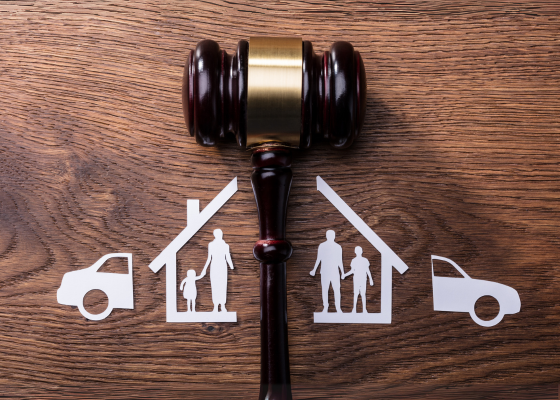2nd September 2025

As the seasons change, many couples find themselves reflecting on their relationships. If you’re considering a separation this autumn, one of the biggest concerns is often: what happens to the family home?
Whether you’re married, in a civil partnership, or cohabiting, your rights and options will depend on your legal status, how the property is owned, and most importantly what’s best for any children involved.
Sarah Johnson, Solicitor in our Family Law team at Myers & Co, explains what you need to know.
No. If you’re married or in a civil partnership, moving out does not mean giving up your rights to the home.
Even if the property is in your partner’s name, you may have Matrimonial Home Rights under the Family Law Act 1996. These rights allow you to remain in or return to the home until your divorce or dissolution is finalised. You can also register these rights with HM Land Registry to prevent the property being sold or remortgaged without your consent.
If you’re a joint owner, your ex cannot sell the property without your agreement.
If the home is in their sole name and you’re married, registering your Matrimonial Home Rights will protect your interest. However, if you’re not married, the situation is more complex. You’ll need to prove a financial interest—such as contributing to the mortgage or renovations—under the Trusts of Land and Appointment of Trustees Act (TOLATA) 1996.
Unmarried couples do not have the same legal protections as married couples. If your name isn’t on the title deeds, you’ll need to provide evidence of financial contributions to claim a share of the property.
If children are involved, the court can delay a sale or allow one parent to remain in the home until the children reach a certain age, under the Children Act 1989.
If you and your partner can’t agree, the court can issue an Occupation Order to determine who stays in the property. The court will consider factors such as:
In most cases, the court will expect you to try mediation before taking legal action.
The family home is usually treated as a marital asset. The court will aim for a fair outcome, taking into account:
Outcomes may include:
Autumn can be a time of change and for some, that means making difficult decisions about the future. If you’re unsure about your rights or what to do next, we’re here to help.
At Myers & Co Solicitors, we offer clear, practical advice tailored to your situation. Whether you’re married or cohabiting, with or without children, we’ll guide you through your options and help you move forward with confidence.
To find out more please contact Sarah Johnson, Solicitor in our Family Law team, on 01782 491025 or email sarah.johnson@myerssolicitors.co.uk. Myers & Co has offices in Stoke-on-Trent, Staffordshire.
